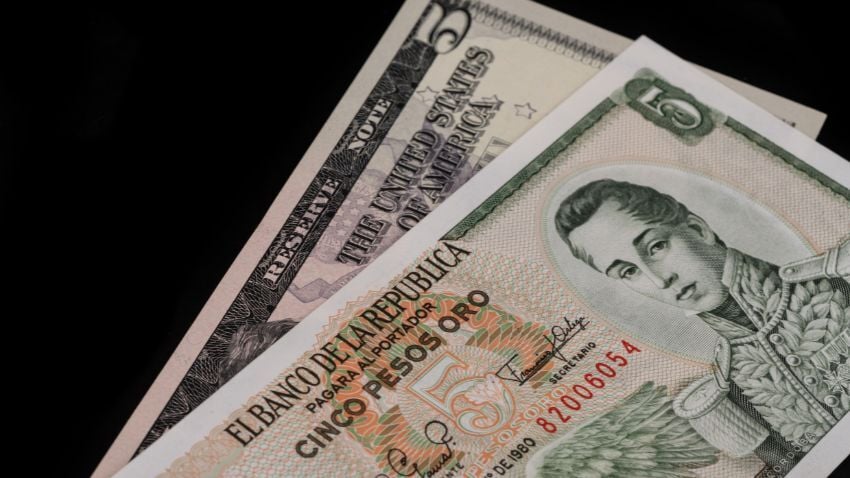The 6 Safest Countries In Asia
Asia is one of the most fascinating regions in the world for travel, offering an extraordinary mix of cultures, histories, and landscapes. From...

5 min read
Did you know that Boris Johnson had to pay fines to the IRS? He is what some people call an “accidental American,” meaning that he was born in the U.S. but spent most of his life outside the States (he moved to the UK when he was 5).
The IRS kept piling up penalties upon penalties on him, even though he didn’t know about his tax obligations. Boris thought selling his house in London was free of any capital gains, but the IRS saw this as a great opportunity to get a chunk of his money. As much as he wrote articles ranting about this outrageous persecution, he ended up footing the bill and renouncing his American citizenship.
This example is just an instance of what happens to thousands of poor souls around the world. But what is the law that allows the IRS to chase after American expats this far? The answer is the Foreign Account and Tax Compliance Act (FATCA).
In this article, we’ll explore the basics of FATCA, including how it works and what it means for American citizens living abroad.
FATCA is a federal law enacted in 2010 to prevent U.S. citizens who hold financial assets offshore from committing tax evasion. At least, that’s what the IRS claims, but the underlying intentions are way more disturbing—namely, burdensome reporting requirements and penalties for non-compliance. Below, you’ll check what Americans have to deal with if they hold offshore accounts and assets.
FATCA imposes oppressive reporting obligations on two main groups: individual U.S. taxpayers and foreign financial institutions (FFIs). American citizens, whether they live in the U.S. or abroad, must report their foreign financial accounts and assets to the IRS if their total value is above specific thresholds.
This reporting is done through Form 8938 (Statement of Specified Foreign Financial Assets), which must be filed with the annual tax return. For example, a single U.S. resident must report foreign financial assets exceeding $50,000 USD, whereas an expat must report if this total value is above $200,000 USD on the last day of the year.
On the other hand, FFIs, such as foreign banks and investment firms, must identify and report information about accounts held by U.S. taxpayers to the IRS. Among other data, these institutions must disclose the name, address, account number, balance, deposits, and withdrawals that have been made during the year. Some countries like Switzerland, with its strong financial privacy laws, have refused to do business with American clients for this exact reason.

FATCA imposes severe financial and compliance burdens on American expats, with penalties up to $50,000 for non-disclosure and a 30% withholding tax on FFIs, making compliance necessary
The penalties for failing to comply with FATCA are hefty and can have serious consequences:
Individual taxpayers who fail to report their foreign-held assets in Form 8983 are liable to pay a $10,000 USD penalty—though it can reach as much as $50,000 USD for continual failure to report after IRS notification. Understatements of income due to non-disclosed foreign assets may also result in additional fines.
FFIs that do not comply with FATCA’s reporting requirements are subject to a 30% withholding tax on certain U.S.-source payments, such as interest, dividends and gains from the sale of U.S. securities. This withholding tax persuades FFIs not to mess around with FATCA and to comply to avoid losing money or to stop doing business with American clients altogether.
FATCA has introduced significant financial and compliance burdens for American expats and even Americans holding assets abroad. This legislation has made life extremely difficult for U.S. citizens living abroad. If Boris Johnson couldn’t escape it, I’m afraid regular Americans can’t. “The Land of the Free” sees its citizens as slaves and mere numbers on a screen.
One of the most obvious consequences of FATCA on American citizens is the financial burden it entails. Expats are required to report their foreign financial assets in detail, and even minor errors or omissions can lead to severe penalties. Therefore, expats are left with no other option than to hire specialized tax attorneys to make sure they fulfill their FATCA obligations correctly. Filing all the forms is so complex that expats may end up paying thousands in legal fees if not done properly.
Last but certainly not least, American expats can’t escape their obligations even when abroad. FATCA mandates detailed reporting information on foreign financial accounts. There might be no wrongdoing on your part, but you still need to share lots of information, like your bank account balance, who you share your bank account with, and the address of the financial institution where you hold assets. Not only do you need to spend valuable time and money complying with these reporting requirements, but there’s also the possibility that your information could be misused or leaked.

Amid stringent IRS regulations, more Americans are seeking second passports or choosing to renounce their citizenship to avoid complications
The U.S. government came up with FATCA to supposedly tackle tax evasion. While I can’t emphasize enough how important it is to fulfill your tax obligations to your home country, the consequences of this legislation have gone much further, threatening the privacy of any American citizen who holds overseas accounts.
To illustrate how far this goes, your privacy is compromised even if you legally hold accounts abroad, and you are responsible for all the administrative costs associated with reporting foreign-held assets!
One outcome of FATCA has been the increase in the number of American citizens who have opted to renounce their citizenship. Normally, they get one or more second passports and then renounce their citizenship—all while paying the exit tax. Some high-net-worth individuals living abroad come to the realization that renouncing their U.S. passport is the only viable solution to save on taxes and avoid cumbersome reporting requirements. Boris Johnson is nothing but an instance of thousands of Americans who have decided to bid farewell to the IRS’s oppression.
Many foreign financial institutions, faced with the costly and complex compliance requirements imposed by FATCA, have simply decided that it's not worth the hassle to maintain American clients. The risk of facing severe penalties for reporting errors has led banks, particularly in countries with strict privacy laws, to close accounts or refuse new ones for U.S. citizens. Americans living abroad tend to have a hard time opening bank accounts, let alone getting loans and financing. This is where a second passport would come in handy.
FATCA has also inadvertently created economic disincentives for Americans considering working or living abroad. The fear of double taxation and the legal and financial burden these reporting requirements demand make expat hopefuls think twice before packing their bags. Since the cons may outweigh the pros, some Americans decide to stay in their country rather than go abroad and pursue international opportunities.

Being unable to conduct business or open accounts outside the U.S. is a serious issue for Americans. That's why my American clients are already securing their second passports to ensure smooth transactions abroad
FATCA is a true behemoth. Its oppressive financial and reporting burdens have made expats reconsider their investment strategies. Under the guise of fighting tax evasion, the IRS has become an even greedier beast that complicates Americans’ financial lives to the extreme. It just makes sense for Americans to get a second passport or even renounce their U.S. citizenship to avoid all this hassle.
These regulations are another reason to focus on second passports. Not being able to do business or open accounts outside the U.S. are problems no American wants to encounter. FATCA is not changing anytime soon, I’m afraid, but what you can change is what you do about it. My American clients are already working on their second passports to make sure their dealings abroad can go frictionless.
Do you want to know more about how a second passport can help you get more freedom? To get started, download your free special report, ‘Plan-B Residencies and Instant Citizenships,’ where you can learn the ropes.
If you want the best intel from the expat world, including profitable offshore opportunities, little-known tax-saving strategies, and hard-won insights on immigration, passports, and Plan-B residencies, all delivered to your inbox every single week, then join our daily correspondence, EMS Pulse®. Currently enjoyed by over 84,000 expats and expat-hopefuls worldwide. Fill in the form below to join our newsletter free:

Written by Mikkel Thorup
Mikkel Thorup is the world’s most sought-after expat consultant. He focuses on helping high-net-worth private clients to legally mitigate tax liabilities, obtain a second residency and citizenship, and assemble a portfolio of foreign investments including international real estate, timber plantations, agricultural land and other hard-money tangible assets. Mikkel is the Founder and CEO at Expat Money®, a private consulting firm started in 2017. He hosts the popular weekly podcast, the Expat Money Show, and wrote the definitive #1-Best Selling book Expat Secrets - How To Pay Zero Taxes, Live Overseas And Make Giant Piles Of Money, and his second book: Expats Guide On Moving To Mexico.

Asia is one of the most fascinating regions in the world for travel, offering an extraordinary mix of cultures, histories, and landscapes. From...

The presidential elections held in Costa Rica on February 1, 2026, resulted in a clear message that once again confirmed Latin America's shift to the...

Colombia inspires many thoughts and feelings. Some think of global pop icons like Shakira, J. Balvin, and Karol G. Others are drawn to the magical...